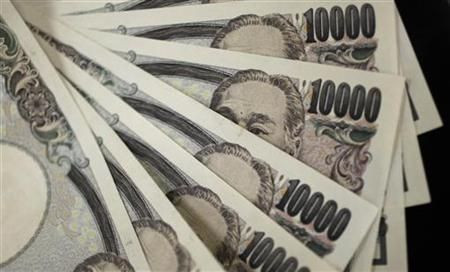Japan’s Leading Economic Indicator Index Falls In September

Japan’s leading index, a composite index based on 12 economic indicators designed to predict the future direction of the economy, fell in September from the previous month, indicating a continuing decline in the country's economic condition.
Data released by the Cabinet Office Tuesday show that Japan’s leading index of economic indicators fell to 91.7 in September down from 93.2 in August. The index, which includes inventory ratios, consumer sentiment and machinery orders as leading economic indicators, is seen as a measure of the projected state of the country’s economy.
This report comes after it was reported earlier this month that Japan's monetary base rose in October compared to that in the previous month, indicating that the monetary easing policies are leading to an increase in the amount of currency in circulation. According to data released last week by the Bank of Japan (BoJ), the country’s monetary base advanced to 10.8 percent in October, up from the 9 percent rise in September.
Last month, it was reported that Japan's core consumer prices continued to fall in September, indicating that deflation persists to impair the economic growth prospects. The data released by Japan’s Statistics Bureau show that the consumer prices declined to 0.1 percent in September from the earlier year, down from 0.3 percent fall in August.
Last week, the BoJ announced more monetary easing policies with the asset purchase program (APP) by about 11 trillion yen ($138-billion). This brings the total size of the APP to about 91 trillion yen, of which 25 trillion yen is in loans, and the remaining 66 trillion yen is for asset purchases. Also the policy board agreed a further 5 trillion yen each of Japanese government bonds and treasury bill purchases and announced 0.91 trillion yen of purchases of risk assets.
Meanwhile, market participants feel that Japan’s economy will need further support especially with the country’s industrial output dropping in September compared to that in the previous month in an indication of the faltering economic condition and soft global demand. It was reported last month that Japan’s core machinery orders fell in August compared to that in the previous month, showing that there is an urgent need to take additional measures for enhancing the growth potential of the economy.
© Copyright IBTimes 2025. All rights reserved.





















